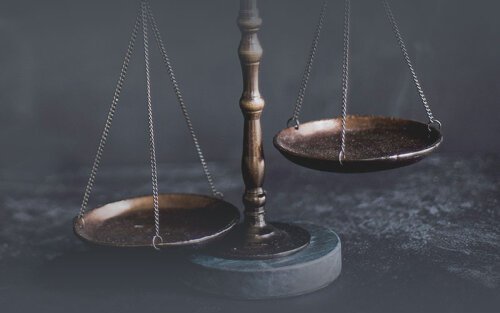Best Bankruptcy & Debt Lawyers in Kaunas
Share your needs with us, get contacted by law firms.
Free. Takes 2 min.
List of the best lawyers in Kaunas, Republic of Lithuania
About Bankruptcy & Debt Law in Kaunas, Republic of Lithuania
Bankruptcy and debt law in Kaunas, the second largest city in Lithuania, is primarily regulated by national legislation that applies across the Republic of Lithuania. These laws provide legal mechanisms for businesses and individuals who are unable to meet their financial obligations to find solutions, either through restructuring, debt relief, or liquidation proceedings. In Kaunas, as in the rest of the country, bankruptcy cases are handled by specialized courts and overseen by court-appointed administrators. The legal processes are designed to balance the rights and interests of debtors and creditors, aiming to preserve as much value as possible for all parties involved.
Why You May Need a Lawyer
Legal assistance is often essential when dealing with bankruptcy or debt situations in Kaunas. Common scenarios where individuals or businesses may require a lawyer include:
- When you are unable to pay personal or business debts and need advice on legal options
- If creditors have initiated debt recovery or enforcement proceedings against you
- If you are facing the risk of losing property or assets due to unpaid debts
- When your business is facing insolvency and you need to file for restructuring or bankruptcy
- If you are a creditor seeking to recover unpaid debts from an insolvent debtor
- If you need assistance negotiating with creditors or entering into debt repayment agreements
- To ensure compliance with the complex legal requirements and deadlines established by Lithuanian bankruptcy law
A lawyer experienced in bankruptcy and debt matters in Kaunas can help you understand your rights, choose the best course of action, and represent your interests before courts and authorities.
Local Laws Overview
In Kaunas, bankruptcy and debt issues are governed primarily by national legislation such as the Law on Bankruptcy of Legal Entities, the Law on Personal Bankruptcy, and the Civil Procedure Code of the Republic of Lithuania. Some of the most relevant features of these laws include:
- Corporate Bankruptcy: A company is considered insolvent if unable to meet its debts on time. Creditors or the company itself can initiate bankruptcy proceedings before the Kaunas Regional Court.
- Personal Bankruptcy: Since 2013, individuals in Lithuania can apply for personal bankruptcy if they meet legal criteria, such as persistent and significant financial hardship. The process mandates a three-year debt repayment plan, after which remaining debts may be discharged.
- Debt Restructuring: Troubled companies can apply for restructuring rather than bankruptcy if there is a reasonable prospect of restoring solvency.
- Court Supervision: Bankruptcy and restructuring are court-supervised procedures with appointed administrators who manage the process, distribute assets, and ensure legal compliance.
- Debtor Protections: Once bankruptcy is declared, creditors’ rights to enforce individual claims are suspended and assets are managed collectively.
- Creditor Committees: Committees represent creditors’ interests in complex corporate bankruptcy cases.
Kaunas residents and business owners should keep in mind that the procedures, requirements, and outcomes are strictly regulated, and any misstep can have serious legal and financial consequences.
Frequently Asked Questions
What is the difference between personal and corporate bankruptcy?
Personal bankruptcy is available to individuals and provides a structured way to manage insurmountable debts, while corporate bankruptcy applies to companies or legal entities unable to pay their creditors. The procedures and requirements for each are different and determined by Lithuanian law.
How can I apply for personal bankruptcy in Kaunas?
You must be a resident or have your main interests in Lithuania, show that you are unable to pay your debts, and file an application to the competent court. Supporting documentation and a proposed debt repayment plan are required. Consulting a lawyer is highly recommended.
Are all debts discharged after bankruptcy?
Not all debts can be discharged. Certain obligations, such as fines, alimony, or damages resulting from criminal activity, remain even after completion of bankruptcy proceedings. It is important to review specific exclusions with a lawyer.
Can I keep my home or car after filing for bankruptcy?
Retention of essential property may be possible, especially if it is necessary for living or working. However, non-essential assets are usually liquidated to satisfy creditors. The court and bankruptcy administrator will assess each situation individually.
How long does the bankruptcy process take?
Personal bankruptcy usually involves a three-year rehabilitation or repayment period. Corporate bankruptcy timeframes vary depending on the complexity of the case, but typically take several months to a few years.
What role does the bankruptcy administrator play?
The bankruptcy administrator is appointed by the court to manage the debtor’s assets, supervise the proceedings, communicate with creditors, and ensure compliance with all legal requirements throughout the process.
Can businesses try to avoid bankruptcy through restructuring?
Yes, if the company is still viable and has a realistic chance of recovery, it can apply for restructuring as an alternative to liquidation. This involves negotiating new terms with creditors and submitting a restructuring plan for court approval.
How are creditors informed about bankruptcy in Kaunas?
Creditors are formally notified once bankruptcy proceedings are initiated and can submit claims to the bankruptcy administrator within a set deadline. Public announcements are also made in the official Lithuanian Register of Legal Entities.
What happens if I do not cooperate with the bankruptcy process?
Failure to cooperate with the court or the bankruptcy administrator can lead to dismissal of your case, personal liability, or even criminal prosecution if fraudulent conduct is discovered.
Are legal consultations confidential?
Yes, consultations with lawyers are confidential and protected by legal privilege. You can openly discuss your financial situation and obtain professional advice without fear of unauthorized disclosure.
Additional Resources
If you are seeking additional information or assistance regarding bankruptcy and debt matters in Kaunas, consider reaching out to the following resources:
- State Enterprise Centre of Registers - For information on insolvency registers and legal entity data
- Kaunas Regional Court - The court that handles local bankruptcy and restructuring cases
- Lithuanian Bar Association - For finding qualified lawyers in the field of bankruptcy and debt
- Bankruptcy Administration Service - For guidance on processes and procedures for bankruptcy administrators
- Consumer Rights Protection Authority - For support with consumer-level debt or credit issues
Local municipalities and social assistance centers may also provide counseling or support services for those struggling with financial hardship.
Next Steps
If you believe that bankruptcy or debt issues may affect your financial future in Kaunas, it is crucial to act early. Here are practical steps you can take:
- Assess your financial situation and gather relevant documentation regarding debts and assets
- Contact a qualified bankruptcy or debt lawyer in Kaunas who can advise you on your rights and options
- Discuss potential solutions such as negotiation, repayment plans, restructuring, or formal bankruptcy
- Follow legal advice closely and be prepared to provide full disclosure and cooperation throughout any proceedings
- Reach out to supportive government bodies or resources for additional information and assistance
Addressing bankruptcy and debt issues with professional help increases the chances of a fair, manageable outcome and prevents future legal complications.
Lawzana helps you find the best lawyers and law firms in Kaunas through a curated and pre-screened list of qualified legal professionals. Our platform offers rankings and detailed profiles of attorneys and law firms, allowing you to compare based on practice areas, including Bankruptcy & Debt, experience, and client feedback.
Each profile includes a description of the firm's areas of practice, client reviews, team members and partners, year of establishment, spoken languages, office locations, contact information, social media presence, and any published articles or resources. Most firms on our platform speak English and are experienced in both local and international legal matters.
Get a quote from top-rated law firms in Kaunas, Republic of Lithuania — quickly, securely, and without unnecessary hassle.
Disclaimer:
The information provided on this page is for general informational purposes only and does not constitute legal advice. While we strive to ensure the accuracy and relevance of the content, legal information may change over time, and interpretations of the law can vary. You should always consult with a qualified legal professional for advice specific to your situation.
We disclaim all liability for actions taken or not taken based on the content of this page. If you believe any information is incorrect or outdated, please contact us, and we will review and update it where appropriate.
Browse bankruptcy & debt law firms by service in Kaunas, Republic of Lithuania
Kaunas, Republic of Lithuania Attorneys in related practice areas.

















